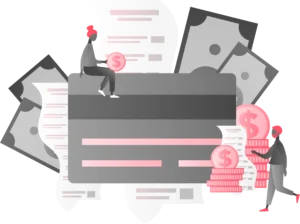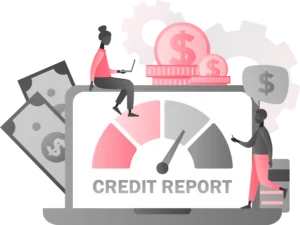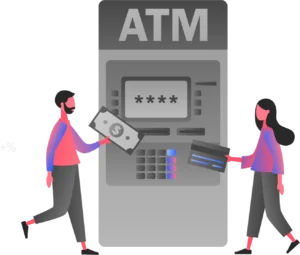The world of credit can be unnerving for anyone—let alone college students in Canada. With education to focus on and a budget to manage, finding the right financial tools to support your journey is very important.
Among these tools, student credit cards are a practical choice for managing daily expenses while building a positive credit history. The best student credit cards in Canada offer a range of benefits tailored to students' unique needs, from low or no annual fees to rewards on everyday purchases. The student credit card you pick should align with your day-to-day lifestyle and post-graduation future self.
Advertisements
A brief overview of student credit card
Finding the right student credit card in Canada isn’t just about comparing fees and rewards; it's about matching a card to your lifestyle and financial habits.
Creditpicks
Tweet
Student credit cards are specialized financial products designed to meet the needs of college and university students. They often come with features that make them accessible to young adults building their credit history for the first time.
These features include lower credit limits, minimal or no annual fees, and rewards or cash back on purchases common among students, such as textbooks, groceries, and online subscriptions.
Key benefits of student cards include the following:
- Building credit history: Timely payments and responsible use can help establish a good credit score, critical to future financial endeavours like applying for loans or renting an apartment.
- Financial management: With features like mobile banking apps, students can monitor spending, track expenses, and learn budgeting skills.
- Rewards and perks: Many student cards offer rewards points, cash back on purchases, or discounts at partner retailers, making them a good option for saving money on everyday expenses.
Features to look for in a student credit card

When searching for the best student credit card, consider the following features to maximize your benefits:
- No or low annual fee: Ideally, a student credit card should have no yearly or very low fee, making it cost-effective for students on a budget.
- Rewards and benefits: Look for cards that offer rewards on categories where students typically spend the most, such as:
- Groceries
- Dining out
- Textbooks and school supplies
- Welcome offers: Some cards offer welcome bonuses, such as extra points, cash back, or discounts on first purchases.
- Foreign transaction fees: Cards with low or no foreign transaction fees are invaluable for students studying abroad or travelling.
- Cash advances: Understand the terms for cash advances, which can come with higher interest rates and fees.
Comparison of key features across top student credit cards
The following table outlines the features of five select student credit cards currently available in Canada.
Advertisements
The best student credit cards in Canada reviews
Choosing the best student credit card requires careful consideration of your spending habits and financial needs. Here’s a closer look at our top three picks.
TD Low Rate Visa Card: The budget-friendly choice
The TD Low Rate Visa Card offers a promotional interest rate of 8.99% on purchases for the first six months, with a standard rate of 12.90% for purchases and cash advances afterward. The annual fee is $25.
This card includes benefits like optional travel insurance, emergency roadside assistance with TD Auto Club Membership, and enhanced security features such as Visa Zero Liability. Cardholders can save on car rentals with Avis and Budget and enjoy digital wallet compatibility with Apple Pay, Google Pay, and Samsung Pay. For more details, you can visit the official TD website.
RBC ION+ Visa: The rewards maximizer
The RBC ION+ Visa credit card focuses on rewarding everyday spending with a higher earning rate in categories such as groceries, dining, gas, and more. It includes benefits like mobile device insurance, extended warranty, and purchase security.
The card targets those who spend regularly on these categories, offering them a way to accumulate reward points that can be redeemed for various options. For a detailed overview of the card's features and benefits, including fees, rates, and eligibility requirements, it's best to refer directly to the RBC website.
CIBC Aeroplan Visa Card for Students: The travel enthusiast
The CIBC Aeroplan Visa Card for Students is a no-annual-fee card that helps students earn Aeroplan points on their purchases. With an initial bonus of 10,000 Aeroplan points after the first purchase, equivalent to a short-haul flight in North America, this card is aimed at students who want to start earning travel rewards.
It offers 1 point for every $1 spent on eligible gas, groceries, and direct Air Canada purchases and 1 point for every $1.50 on all other purchases. Additional benefits include car rental collision and loss damage insurance and purchase security and extended protection insurance. For more details, visit the CIBC website.
Maximizing your card's potential: Beyond the basics
While choosing the right student credit card is crucial, understanding how to maximize its potential can significantly impact your financial well-being. This section delves into strategies for getting the most out of your card, including leveraging rewards programs, understanding the benefits of good credit management, and tips for using your card as a budgeting tool.
Leveraging towards programs
Most student credit cards have rewards programs that can be incredibly beneficial if used wisely. Understanding how to earn and redeem rewards can lead to significant savings.
The following table demonstrates how to maximize rewards on everyday student expenses.
| Expense category | Tips for maximising rewards |
| Groceries | Use your card for all grocery purchases to earn cash back or points; look for cards offering higher rewards in this category |
| Textbooks and supplies | Purchase through affiliated retailers if your card offers bonus points for specific merchants |
| Online subscriptions | Set up automatic payments with your card to earn rewards on recurring expenses |
Credit management
A good credit score can open doors to future financial opportunities, including lower interest rates on loans and better credit card offers. Tips for managing your credit effectively include keeping your utilization low, monitoring your credit score regularly, and diversifying your credit mix.
Using your card as a budgetary tool
Credit cards can help you track spending more efficiently. By reviewing your monthly statements, you can gain insights into your spending habits and adjust your budget accordingly. Budgeting apps may also be helpful.
Advertisements
Safety and security: Protecting yourself and your credit
The convenience of credit cards comes with the responsibility of safeguarding your financial information. Understanding how to protect your card is as crucial as making purchases. Here’s how you can keep your financial information secure.
Fraud protection features
Credit card companies have built-in security features to shield you from fraud. Familiarize yourself with these protections:
- Transaction alerts: Enable alerts to be notified of any activity on your card so you can spot unauthorized transactions immediately.
- Virtual card numbers: Some issuers provide temporary virtual card numbers for online purchases, which can help protect your actual card details.
Steps to take if you suspect fraud
Nearly all credit card companies have an associated app that allows you to manage your card. These apps typically can turn on and off your credit card or even cancel it altogether. This safeguard is critical.
Contact your card issuer immediately if you suspect a fraudulent transaction on your card or your information has been compromised. A customer service telephone number is likely printed on the back of the card.
Also, continue to monitor your credit. Keep an eye on your credit report. Unexpected changes can be a sign of identity theft or fraud. By taking these proactive steps, you can use your credit card confidently, knowing you're taking charge of your financial security.
How to choose the right card and apply

Finding the right student credit card in Canada isn’t just about comparing fees and rewards; it's about matching a card to your lifestyle and financial habits. Here’s how you can pinpoint the right credit card for you:
- Assess your spending: Take note of where you spend the most each month. Whether it’s groceries, online subscriptions, or eating out, there’s likely a card that rewards those specific purchases.
- Consider your financial goals: Are you aiming to build credit, earn rewards, or maybe both? Your goal can guide which card features matter most to you.
- Read the fine print: Understand the terms, including interest rates for purchases and cash advances, grace periods, and penalties for late payments.
- Check eligibility requirements: Some cards may require a minimum income or enrolment in a post-secondary institution. Ensure you meet these criteria before applying.
Apply for a student credit card
The application process for a student credit card typically involves providing proof of enrolment in a college or university alongside personal identification. Here’s a simplified overview:
- Online applications: Most financial institutions offer online applications, where you'll fill out personal and financial details, including your student status.
- Required documents: Be prepared to upload or present documents proving your identity, address, and student status.
- Approval process: Approval can be instantaneous or take a few days, depending on the issuer. Once approved, your card will be mailed to you.
Managing your credit card
As with all financial products, management is key. To ensure you stay on track, remember the following:
- Always strive to pay your bill on or before the due date. Late payments can negatively impact your credit score.
- Keeping your balance well below your credit limit is wise for your credit score and debt management.
- Regularly check your account to stay aware of your spending and to catch any unauthorized transactions early.
Advertisements
Understanding interest rates and fees
Credit interest rates and fees are crucial to managing a credit card, especially for students who are often on a tight budget. Understanding these can help avoid unnecessary costs and maintain a healthy financial status.
Interest rates
Credit cards typically come with an Annual Percentage Rate (APR), the interest you'll pay on any balance carried over from month to month. Interest is calculated daily based on the card's daily rate (the APR divided by 365). You won't incur any interest charges if you pay your balance in full each month.
Common fees and how to avoid them
The following table includes standard fees and how to avoid them.
| Fee type | Description | How to avoid |
| Annual fee | A yearly charge for having the card (student cards often have lower or no annual fees) | Choose a card with no or low annual fee |
| Foreign transaction fee | Fees charged on transactions made in a foreign currency (they can be around 2.5%-3.5% of the transaction amount) | Use a card with no foreign transaction fees for travel or international purchases |
| Cash advance fee | Withdrawing cash from your credit card comes with a fee, usually a percentage of the amount or a fixed fee, whichever is higher | Avoid using your credit card for cash withdrawals |
Remember to minimize costs
- Pay your balance in full to avoid interest charges.
- Choose a card without an annual fee.
- Opt for a card with lower foreign transaction fees if you travel or shop from international sites.
- Use cash or debit instead of credit for cash advances to avoid the high fees and immediate interest accrual.
Avoiding common pitfalls

Credit cards are powerful financial tools, but they come with responsibilities. Here are some common pitfalls to avoid.
Missing due dates
Late payments can result in fees and harm to your credit score. Set reminders or automate payments to avoid this.
Making only the minimum payment
Paying only the minimum increases your interest and extends your debt period. Aim to pay off the entire balance when possible.
Misunderstanding the fine print
Terms like interest rates, annual fees, and reward conditions should be clear. Misunderstandings can lead to unexpected charges.
Relying on cash advances
These often come with high fees and interest rates from day one. Use them sparingly.
Key takeaways
- Pay your balance in full to avoid interest charges.
- Use your card for planned expenses, not impulse buys.
- Regularly review your account statements to track spending and detect fraud.
- Utilize rewards and benefits that match your spending habits for maximum value.
Additional financial tools for students
While credit cards are a great start, they’re just one piece of the financial puzzle. Other tools can complement your financial strategy:
- Student lines of credit: Offer more flexibility and typically lower interest rates than credit cards, making them ideal for more significant educational expenses.
- Secured credit cards: Require a security deposit but can be a good option for those building or repairing credit.
- Debit cards: Unlike credit cards, debit cards draw directly from your bank account, offering a different way to manage spending.
Each financial product plays a vital role in a comprehensive financial strategy, offering various benefits depending on your needs and goals. As a student, taking the time to understand these options can set the foundation for solid financial health well beyond your university years.
Conclusion
Being a student can be challenging, but choosing the right student credit card is a pivotal step toward financial independence and literacy. The best student credit cards in Canada offer more than a convenient payment method; they're a gateway to building a strong credit history, managing personal finances, and reaping rewards that align with student lifestyles.
The right card can enhance a student's financial situation, from cash back on grocery purchases to significant savings on foreign transaction fees for those studying abroad. When selecting a student credit card, it’s crucial to assess your spending habits, understand the card’s terms and fees, and consider how its benefits align with your lifestyle.
Remember, a credit card is a financial tool, and its effectiveness depends on responsible use. Paying your balance in full each month, keeping track of your spending, and avoiding common pitfalls like late payments and reliance on cash advances will help ensure your credit card experience is positive and beneficial.
Financial savvy takes knowledge and practice
The journey towards financial savvy starts with informed choices and a commitment to responsibility. By choosing wisely and managing your card diligently, you can lay a strong foundation for your credit history and enjoy the benefits and freedom that come with it.
Advertisements








